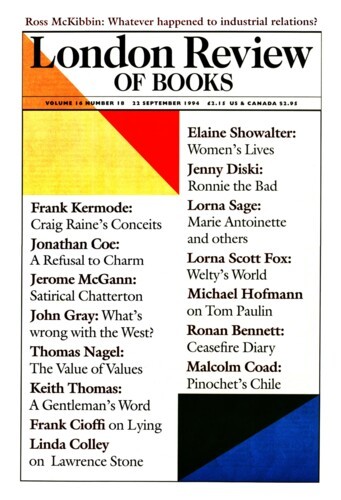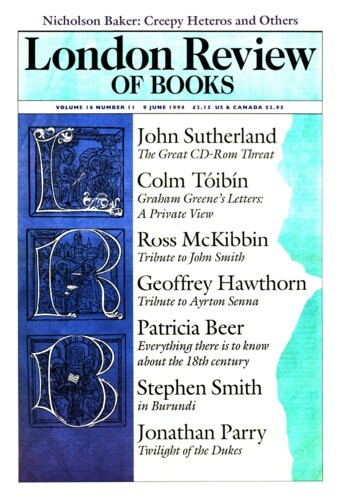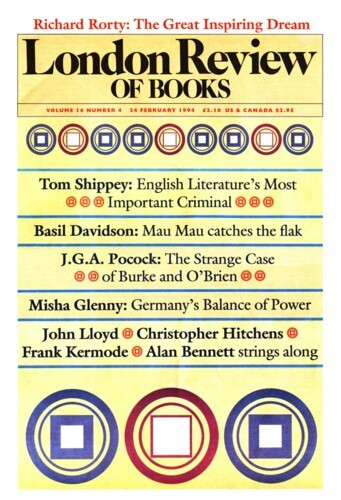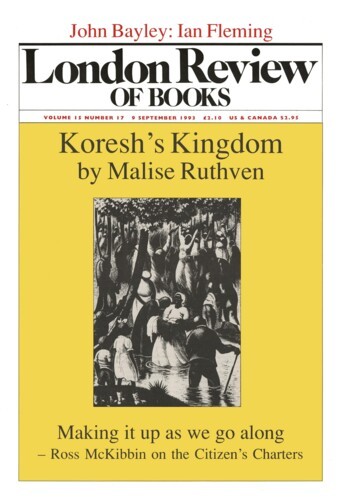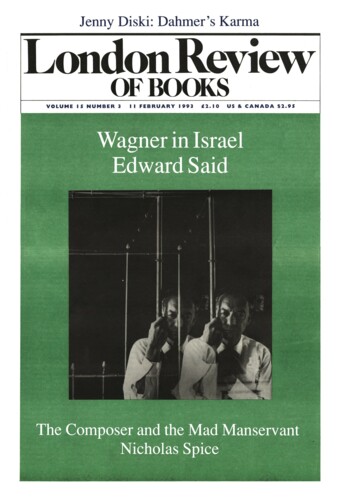It all gets worse
Ross McKibbin, 22 September 1994
For much of the last few years Britain has not had industrial relations, at least not that the public would be aware of. ‘Industrial relations’ to most of us connotes strike unreasonable trade unions – all that is understood by the ‘Seventies’. We have repeatedly told pollsters that unions had too much power and were ‘damaging’ the economy; even trade unionists agreed with this, though they usually exempted themselves and their own unions from blame. The Government has very successfully exploited this folk-memory, and the stated aim of its industrial policies – the restoration of managerial authority – has been pursued with undisguised determination and no political ill-effects. For the Government, the question is one of power. Ministers have not been interested in alternatives to trade unions because most alternatives presuppose a kind of consultative procedure and thus some limitation on management’s ‘right to manage’. Whether its trade union legislation was responsible, or the economic policies which destroyed much of the country’s manufacturing capacity (so rendering workless a good part of the population), the Government’s success is unquestionable. Since its peak in the late Seventies there has been a huge fall in the number of trade unionists and a significant decline in the number of establishments which recognise trade unions. Half of all workplaces in industry and commerce have no union members and only 40 per cent of them recognise unions for the purpose of pay bargaining. In 1990, collective bargaining – the historic British form of wage bargaining – covered only 43 per cent of employees in industry and commerce. Aside from the miners’ strike, which affected hardly anyone except the miners, but them disastrously, and the occasional public sector strike, we have lived since 1979 in an environment without industrial relations – that is, without strikes.’
